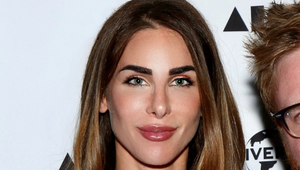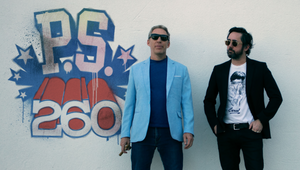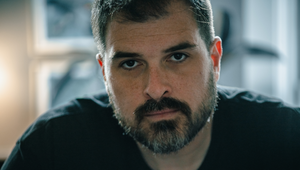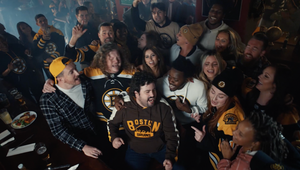
Finely Sliced: Working with What You Have with Ashley Ingbretson

Ashley is a commercial editor based at PS260, an editorial company with offices in New York City, Boston, and Los Angeles. After graduating from the film program at UW-Madison in 2018, she immediately began her career in post-production at PS260 as a runner and quickly rose through the ranks. During her short tenure as editor, Ashley has worked with leading agencies and brands such as M&M’s, American Express, Titleist, Puma, Navy Federal Credit Union, and Harry’s. She has also edited several narrative and documentary short films that have screened worldwide at festivals such as Berlinale, SXSW, the San Diego Latino Film Festival, and Tribeca. Ashley is based in New York City but works with clients across PS260’s Boston and Los Angeles offices as well.
LBB> The first cut is the deepest: how do you like to start an editing project?
Ashley> Ideally, every project starts with a call with creatives to get a feel for everyone’s vision. If people are all expecting different things, it's better to know that at the onset so you can navigate as you move forward. Once those dailies come in, I always take my time watching down footage and making selections as I go. This is probably the most boring answer, but there’s truly nothing more annoying than not knowing your footage inside and out.
LBB> Non-editors often think of editing just in technical terms but it’s integral to the emotion and mood of a film. How did you develop that side of your craft?
Ashley> I think a lot of this is developed when you’re consuming other media. What kind of film are you watching, for instance, and how is the pacing affecting the tone? How are the shot setups being used, and when? What effect does it have? Recently, I’ve been trying to really be aware of the craft while watching film/television instead of just passively consuming. When you know what to look out for, you can be more aware of how you’re manipulating those conventions in your work. At the end of it all, you should be able to sit back, watch your cut, and just feel it’s right. If not, adjust accordingly.
LBB> How important is an understanding of story and the mechanics of story?
Ashley> The story will, one way or the other, inform your editing from project to project. It helps to know if you're doing comedy, drama, dramedy, docu, etc., and where certain points of the narrative might require something different from the edit. Gotta know the basics. But it’s also important to know your project as a whole and how the story fits into it. Is this a narrative-forward project where you want the story to take centre stage with a more minimal, less noticeable editing approach? Or are you doing something a little more experimental where the narrative is more of a vehicle for non-traditional storytelling? You can really get into some capital E Editing with those projects.
LBB> Rhythm and a sense of musicality seem to be intrinsic to good editing (even when it’s a film without actual music) – how do you think about the rhythm side of editing, how do you feel out the beats of a scene or a spot? And do you like to cut to music?
Ashley> I always cut to music for commercial work, whereas with film stuff, I tend to cut without music and then work the soundtrack in later. I’m not entirely sure why I lean that way - with film, to me I think that the story should always come first. Make sure your story has a solid foundation, and then the music should support that. In both commercial and film cases, it's such a satisfying feeling to watch down a cut with just the right track on it to see how well the cut and soundtrack complement each other.
LBB> Tell us about a recent editing project that involved some interesting creative challenges.
Ashley> Last year, I worked on a few projects that were half animated/half-live action. The main spot that springs to mind is the M&M’s 'I’m Just Gonna Be Me' music video introducing the new Purple M&M! These are always fun, collaborative processes not only with the creatives but also with the graphic artists. It’s an interesting set of parameters to edit within, and at the end of that, you're mostly still seeing a pre-concept. Once the final animation is finished, you get to see all that hard work come to life!!
LBB> In the US we know that editors are much more heavily involved across the post production process than in Europe - what’s your favourite part of that side of the job?
Ashley> I have really grown to love the collaborative process of working with directors. There are parts of my job that involve sitting alone in a dark room, surrounded by snacks and making my cuts, but being able to guide your edit through to completion and sit side by side with creatives and directors through mixing, colouring, and finishing is where a lot of the fun is for me.
LBB> What’s harder to cut around – too much material or not enough? (And why?)
Ashley> There are pros and cons to both, but I think for me it's too much material. Watching down all of your footage is an essential part of any edit. But I won’t lie; it can be slightly taxing on some longer-form projects. You kind of itch to get going on the edit. Not having enough material can be a killer, but in the end, you gotta work with what you have!
LBB> Which commercial projects are you proudest of and why?
Ashley> I recently worked on a brand film for the Boulder Crest Foundation, which provides free mental health services to veterans and first responders. The project was so well directed by Andrew and Remy Neymarc, who were incredibly collaborative and allowed me to put a lot of my input into the final product. It’s always really cool to be able to work on something that benefits a great cause.
LBB> There are so many different platforms for film content now, and even in advertising something can last anything from a few seconds to a couple of hours. As an editor, are you seeing a change in the kind of projects you’re getting from brands and agencies?
Ashley> I'm not sure how long this has been growing, but there is definitely a TikTok effect starting to permeate projects - smaller deliverables to go with the main spots whose main objective is to go viral or play well on TikTok or Instagram Reels. These are always fascinating to work on, as they’re usually meant to have a less polished and effortless feel to them. You have to put on different hats and play with the footage in a totally different way.
LBB> Who are your editing heroes and why? What films or spots epitomise good editing for you?
Ashley> I’m always studying and rooting for the work of woman editors in the industry. A project that comes to mind is 'Fire of Love,' the National Geographic documentary about two French volcanologists, which Erin Casper and Jocelyne Chaput edited. Seeing how two editors were able to organise and manipulate an insane amount of nature footage in such a beautiful way blew me away. And, of course, I would be remiss not to mention Margaret Sixel, a frequent collaborator of George Miller, her husband. I think the editing of 'Mad Max: Fury Road' was such an important aspect of how it became an instant classic.
LBB> How does editing in the commercial world differ from the film world and TV world?
Ashley> I think the main difference is how long you get to work on the edit. There’s a much faster turnaround time with commercials that require a lot of quick decision-making on everyone’s part. That’s something I honestly enjoy: being able to start on something fresh at a consistent clip. But with film, there’s way more opportunity to explore and experiment - and I think the reward lasts longer as you get to see those projects make their way into the world over the course of a year or a couple of years!
LBB> Have you noticed any trends or changes in commercial editing over recent years?
Ashley> My career is relatively young, so I’m not sure I’m at a point where I can notice how editing has changed recently - but I am curious to see how AI and new editing technologies will affect our industry in the near future!















